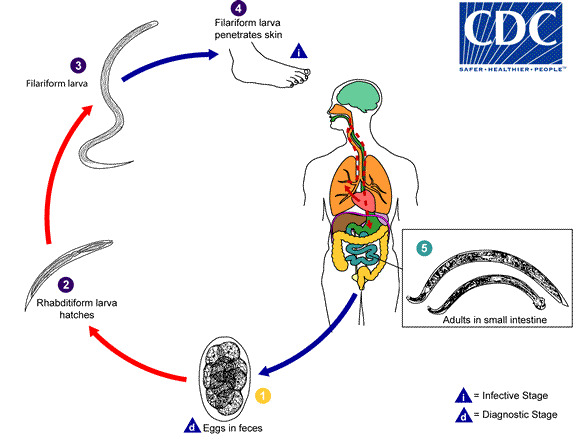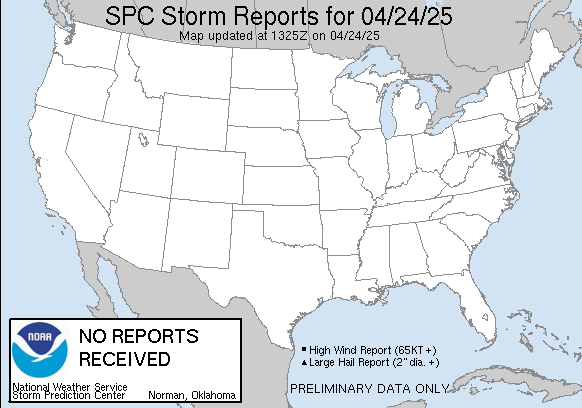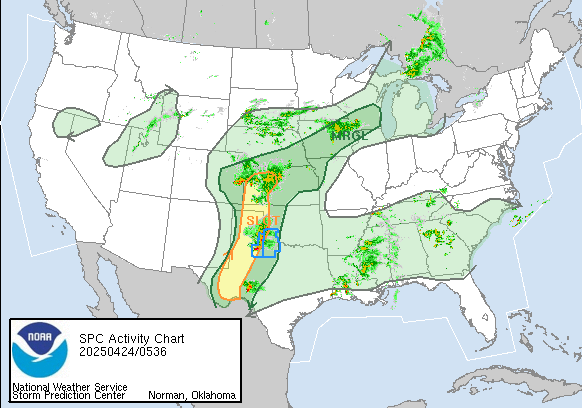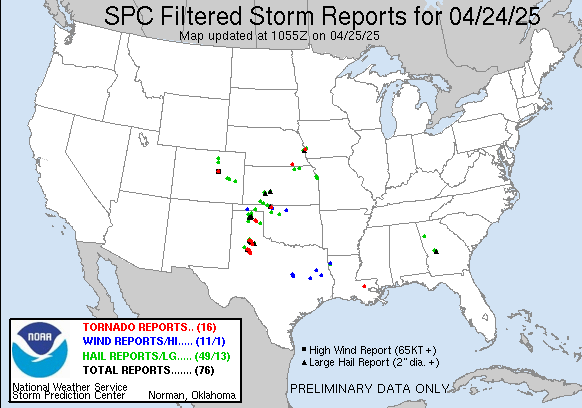Archive for July, 2018
In June, 2017, snakebite envenoming was classified as a category A neglected tropical disease
Saturday, July 21st, 2018Vulnerability to snakebite envenoming: a global mapping of hotspots




Lesbos, Greece: Currently, there are over 8,000 people crammed into a space designed for 3,000 in Moria refugee camp that is leading to clashes and riots, incidents of sexual violence, and a sinking state of mental health.
Saturday, July 21st, 2018Fourteen people have been wounded, some seriously, in a knife attack on a bus in Lübeck, Germany
Friday, July 20th, 20187/20/2012: A mass shooting at a movie theater in Aurora, CO that killed 12 and wounded 70 others.
Friday, July 20th, 2018“……On this day in 2012, gunman James Holmes started a mass shooting at a movie theater in Aurora, a Denver suburb, killing 12 people—the youngest a 6-year-old girl—and injuring at least 70 others.
The Aurora shooting took place shortly after the start of a crowded midnight showing of The Dark Knight Rises, which opened across the United States that day. It was the deadliest mass shooting in Colorado since the 1999 Columbine shooting…..”
A flurry of tornadoes swept through central Iowa, injuring at least 17 people Thursday
Friday, July 20th, 2018A multistate outbreak of multidrug-resistant Salmonella Reading infections linked to raw turkey products
Friday, July 20th, 2018Posted July 19, 2018 at 12:00 PM EDT
CDC and public health and regulatory officials in several states are investigating a multistate outbreak of multidrug-resistant Salmonella Reading infections linked to raw turkey products. The U.S. Department of Agriculture’s Food Safety and Inspection Service (USDA-FSIS) is monitoring the outbreak.
Latest Outbreak Information
At A Glance
- Reported Cases: 90
- States: 26
- Hospitalizations: 40
- Deaths: 0
- Ninety people infected with the outbreak strain of Salmonella Reading have been reported from 26 states.
- Forty people have been hospitalized, and no deaths have been reported.
- Epidemiologic and laboratory evidence indicates that raw turkey products from a variety of sources are contaminated with Salmonella Reading and are making people sick.
- In interviews, ill people report eating different types and brands of turkey products purchased from many different locations. Two ill people lived in a household where raw turkey pet food was fed to pets.
- The outbreak strain has been identified in samples taken from raw turkey pet food, raw turkey products, and live turkeys.
- A single, common supplier of raw turkey products or of live turkeys has not been identified.
- The outbreak strain of Salmonella Reading is present in live turkeys and in many types of raw turkey products, indicating it might be widespread in the turkey industry. CDC and USDA-FSIS have shared this information with representatives from the turkey industry and asked about steps that they may be taking to reduce Salmonella contamination.
Advice to Consumers and Retailers
Always handle raw turkey carefully and cook it thoroughly to prevent food poisoning. This outbreak is a reminder that raw turkey products can have germs that spread around food preparation areas and can make you sick.
CDC is not advising that consumers avoid eating properly cooked turkey products, or that retailers stop selling raw turkey products.
CDC advises consumers to follow these steps to help prevent Salmonella infection from raw turkey:
- Wash your hands. Salmonella infections can spread from one person to another. Wash hands before and after preparing or eating food, after contact with animals, and after using the restroom or changing diapers.
- Cook raw turkey thoroughly to kill harmful germs. Turkey breasts, whole turkeys, and ground poultry, including turkey burgers, casseroles, and sausage, should always be cooked to an internal temperature of 165°F to kill harmful germs. Leftovers should be reheated to 165°F. Use a food thermometer to check, and place it in the thickest part of the food.
- Don’t spread germs from raw turkey around food preparation areas. Washing raw poultry before cooking is not recommended. Germs in raw poultry juices can spread to other areas and foods. Thoroughly wash hands, counters, cutting boards, and utensils with warm, soapy water after they touch raw turkey. Use a separate cutting board for raw turkey and other raw meats if possible.
- CDC does not recommend feeding raw diets to pets. Germs like Salmonella in raw pet food can make your pets sick. Your family also can get sick by handling the raw food or by taking care of your pet.
CDC will update the advice to consumers and retailers if more information comes available, such as a supplier or type of raw turkey product linked to illness.
Symptoms of Salmonella Infection
- Most people infected with Salmonella develop diarrhea, fever, and stomach cramps 12 to 72 hours after being exposed to the bacteria.
- The illness usually lasts 4 to 7 days, and most people recover without treatment.
- In some people, the diarrhea may be so severe that the patient needs to be hospitalized. Salmonella infection may spread from the intestines to the bloodstream and then to other places in the body.
- In rare cases, Salmonella infection can cause death unless the person is treated promptly with antibiotics.
- Children younger than 5 years of age, adults older than 65 years of age, and people with weakened immune systems are more likely to have severe illness.
- For more information, see the CDCSalmonella website.
Investigation Details
July 18, 2018
CDC and public health and regulatory officials in several states are investigating a multistate outbreak of Salmonella Reading infections linked to raw turkey products. The U.S. Department of Agriculture’s Food Safety Inspection Service (USDA-FSIS) is monitoring the outbreak.
Public health investigators are using the PulseNet system to identify illnesses that may be part of this outbreak. PulseNet is the national subtyping network of public health and food regulatory agency laboratories coordinated by CDC. DNA fingerprinting is performed on Salmonella bacteria isolated from ill people by using techniques called pulsed-field gel electrophoresis (PFGE) and whole genome sequencing (WGS). CDC PulseNet manages a national database of these DNA fingerprints to identify possible outbreaks. WGS gives a more detailed DNA fingerprint than PFGE. WGS performed on Salmonella from ill people in this outbreak showed that they are closely related genetically. This means that the ill people are more likely to share a common source of infection.
As of July 11, 2018, 90 people infected with the outbreak strain of Salmonella Reading have been reported from 26 states. A list of the states and the number of cases in each can be found on the Map of Reported Cases page.
Illnesses started on dates from November 20, 2017, to June 29, 2018. Ill people range in age from less than 1 year to 91, with a median age of 41. Sixty-one percent are female. Of 78 people with information available, 40 (51%) have been hospitalized. No deaths have been reported.
Investigation of the Outbreak
In interviews, ill people answered questions about the foods they ate and other exposures in the week before they became ill. Of 61 people interviewed, 37 (61%) people interviewed reported preparing or eating turkey products that were purchased raw, including ground turkey, turkey pieces, and whole turkey. Ill people reported buying many different brands of raw turkey products from multiple stores. Also, two of the 61 ill people interviewed became sick after pets in their home ate raw ground turkey pet food. Three of the 61 ill people interviewed worked in a facility that raises or processes turkeys, or lived with someone who did.
The outbreak strain of Salmonella Reading has been identified in samples from raw turkey pet food in Minnesota, from raw turkey products from 19 slaughter and 6 processing establishments, and from live turkeys from several states. The samples collected by FSIS at these slaughter and processing establishments were part of FSIS’ routine testing under the Salmonella performance standards. Furthermore, WGS showed that the Salmonella strain from these samples is closely related genetically to the Salmonella strain from ill people. This result provides more evidence that people in this outbreak got sick from preparing raw turkey products.
WGS analysis did not identify predicted antibiotic resistance in 68 isolates from 28 ill people and 40 food and animal samples. However, 33 isolates from ill people and 49 isolates from food and animal samples contained genes for resistance to all or some of the following antibiotics: ampicillin, streptomycin, sulfamethoxazole, tetracycline, gentamicin, and kanamycin. Testing of four outbreak isolates using standard antibiotic susceptibility testing by CDC’s National Antimicrobial Resistance Monitoring System (NARMS) laboratory confirmed these results. This resistance likely will not affect the choice of antibiotic used to treat most people since these antibiotics are not normally used to treat Salmonella infections.
Available data indicate that this strain of Salmonella Reading may be present in live turkeys and in raw turkey products. A single, common supplier of raw turkey products or of live turkeys has not been identified.
CDC and USDA-FSIS shared the results of the investigation with representatives from the turkey industry to make them aware of the outbreak and resulting illnesses, and to ask them about steps they may be taking to reduce Salmonella contamination. Because investigation results suggest this strain of Salmonella Reading is present in both live turkeys and in raw turkey products, further investigation and interventions to reduce the prevalence of this strain should target both the live turkey industry and turkey processing facilities. Consumers should be aware that raw turkey may be contaminated with germs and consumers should always follow steps to prevent Salmonella infection from these products.
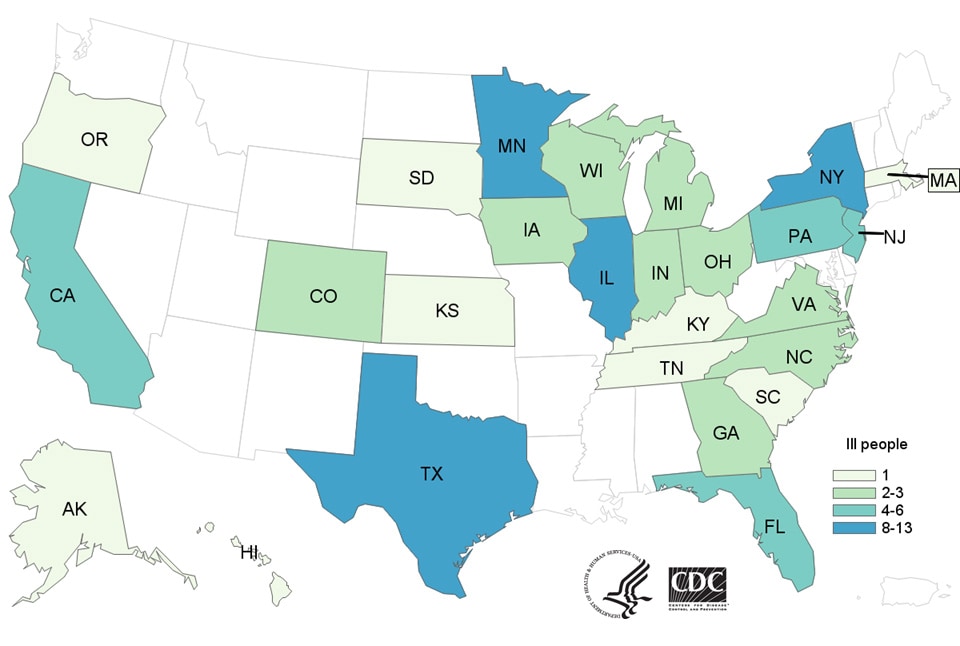
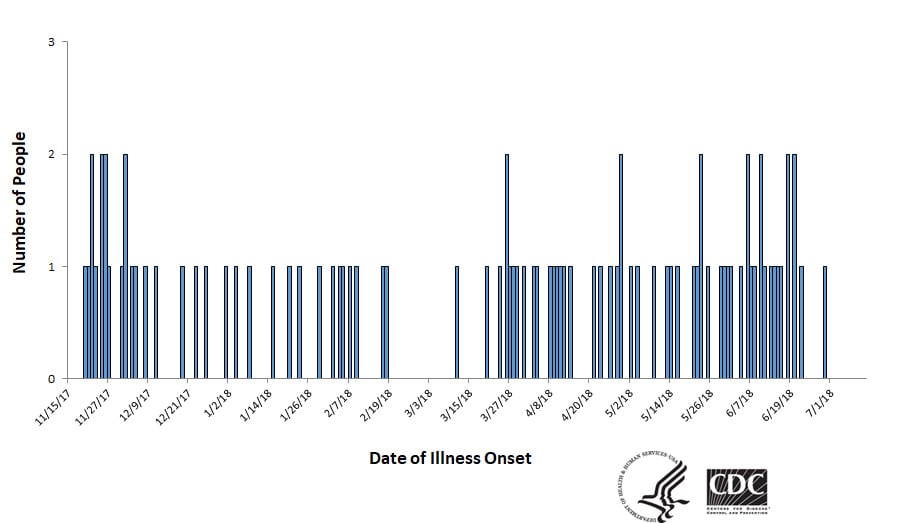
Severe thunderstorms will develop across the Ohio and Tennessee Valley region into the Mid-South Friday. Very large hail, damaging winds, and a few tornadoes can be expected. Isolated severe storms are possible across the central High Plains.
Friday, July 20th, 2018Dangerous Heat Building in the South; Severe Storms From Plains To MS Valley
Intensifying high pressure is producing dangerous heat and humidity in the south-central U.S. with heat indexes possibly exceeding 110. Triple digit heat will also continue for some western areas. Elsewhere, a front moving through the central U.S. may produce severe thunderstorms and heavy rainfall in parts of the Plains and MS Valley through Friday.
11 dead, others missing after boat capsizes during a powerful storm on Table Rock Lake near Branson, MO.
Friday, July 20th, 2018Ancylostoma ceylanicum Hookworm in Myanmar Refugees, Thailand, 2012–2015
Thursday, July 19th, 2018O’Connell EM, Mitchell T, Papaiakovou M, Pilotte N, Lee D, Weinberg M, et al. Ancylostoma ceylanicum Hookworm in Myanmar Refugees, Thailand, 2012–2015. Emerg Infect Dis. 2018;24(8):1472-1481. https://dx.doi.org/10.3201/eid2408.180280

“During 2012–2015, US-bound refugees living in Myanmar–Thailand border camps (n = 1,839) were surveyed for hookworm infection and treatment response by using quantitative PCR. Samples were collected at 3 time points: after each of 2 treatments with albendazole and after resettlement in the United States. Baseline prevalence of Necator americanus hookworm was 25.4%, Ancylostoma duodenale 0%, and Ancylostoma ceylanicum (a zoonosis) 5.4%. Compared with N. americanus prevalence, A. ceylanicum hookworm prevalence peaked in younger age groups, and blood eosinophil concentrations during A. ceylanicum infection were higher than those for N. americanus infection. Female sex was associated with a lower risk for either hookworm infection. Cure rates after 1 dose of albendazole were greater for A. ceylanicum (93.3%) than N. americanus (65.9%) hookworm (p<0.001). Lower N. americanus hookworm cure rates were unrelated to β-tubulin single-nucleotide polymorphisms at codons 200 or 167. A. ceylanicum hookworm infection might be more common in humans than previously recognized.”
